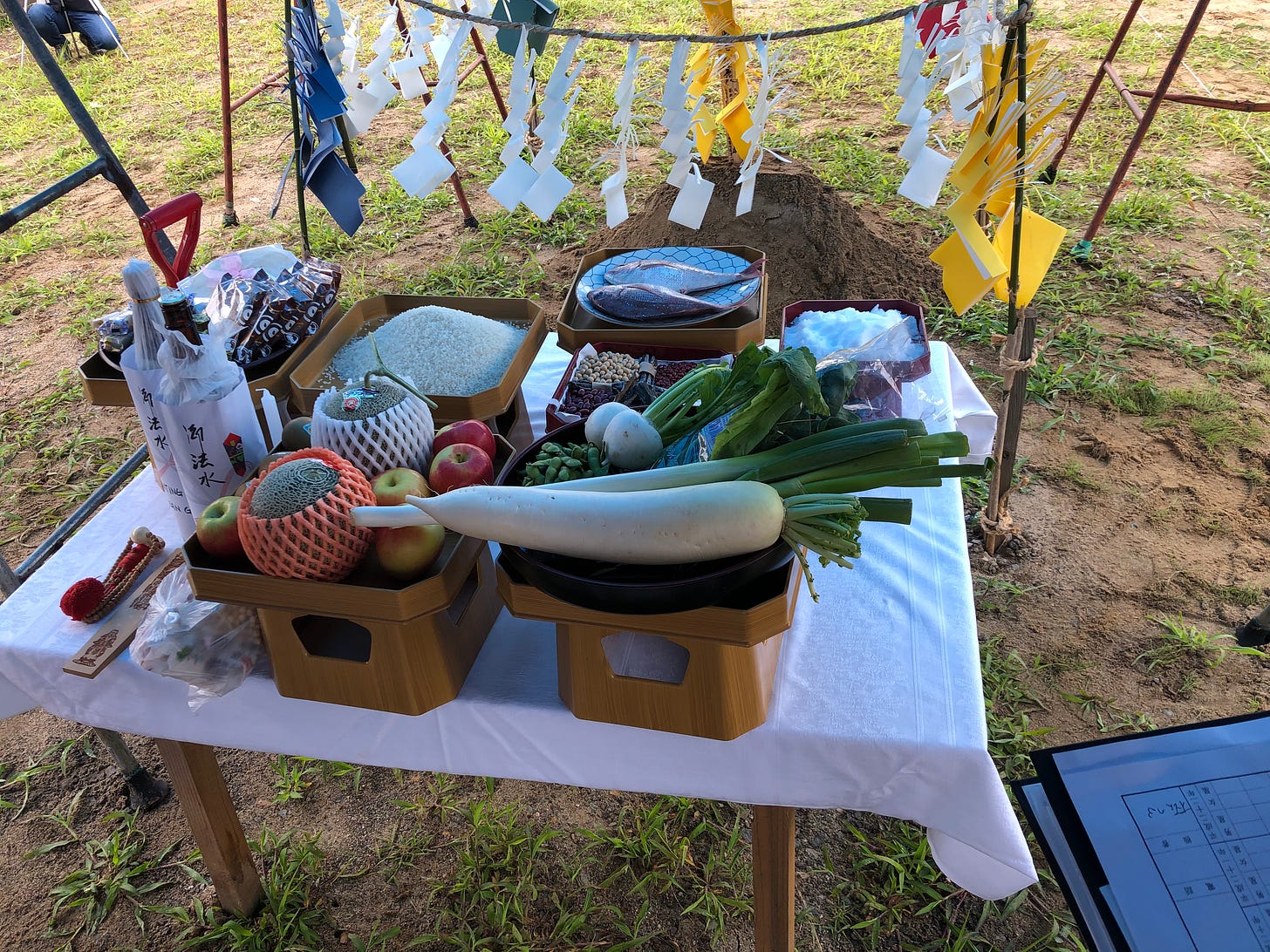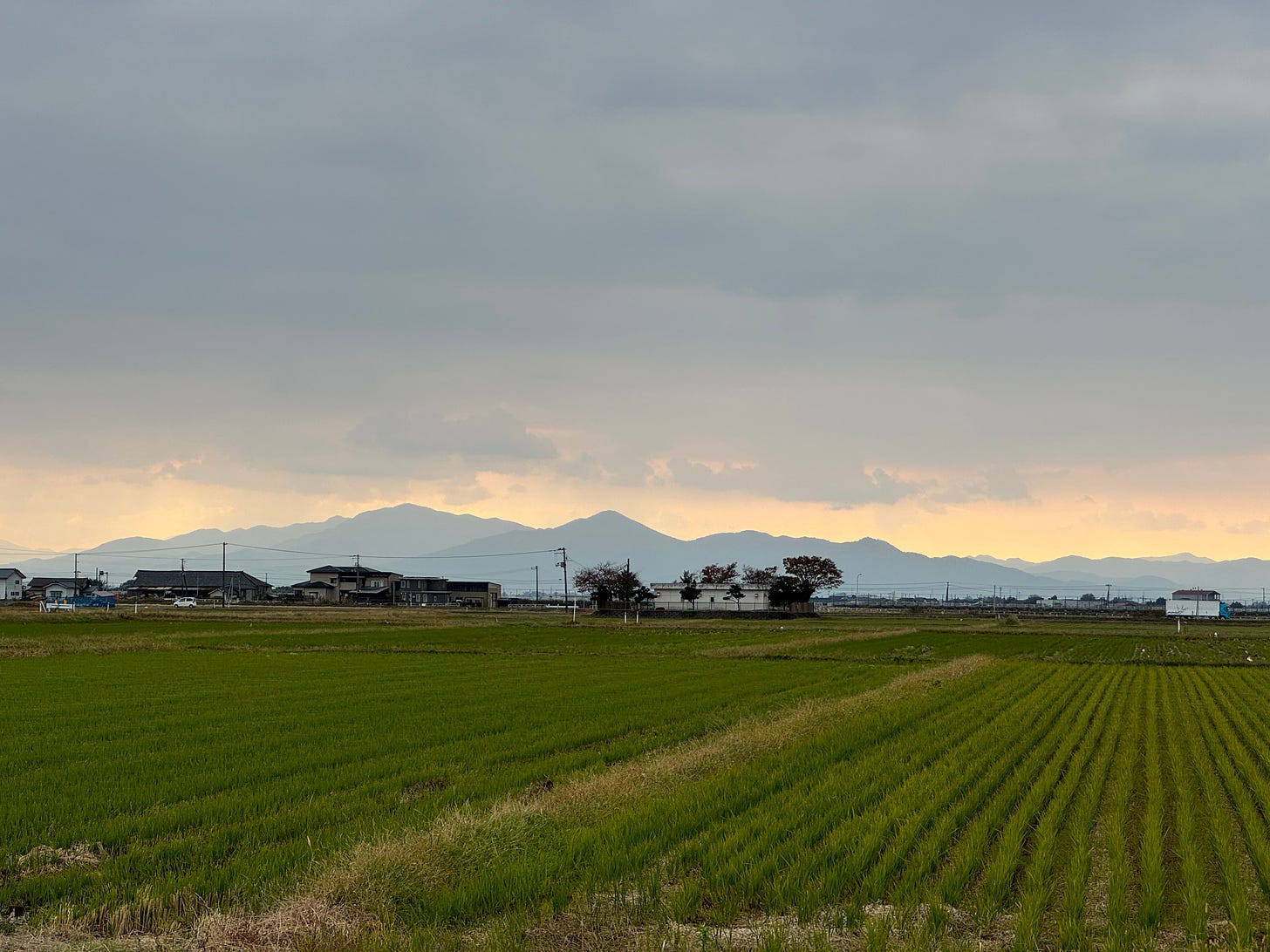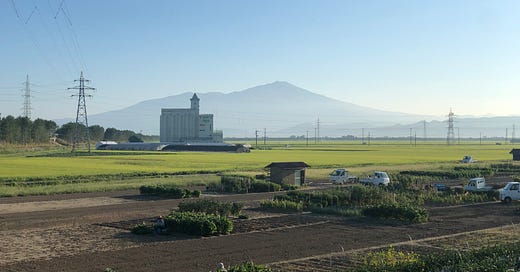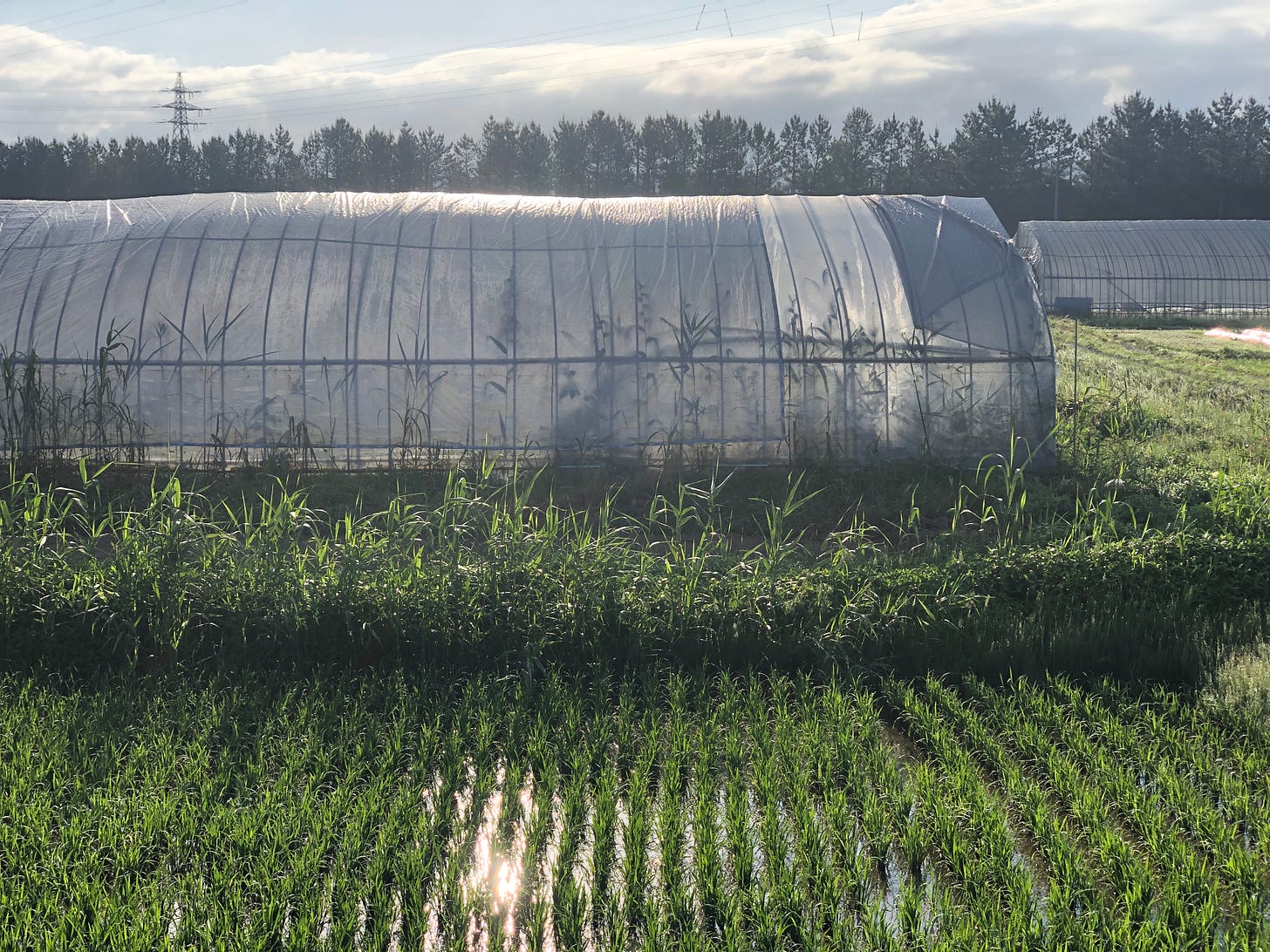Why are greengrocers called the ‘800 store’ in Japan?
Ask the wives of court nobles from the 14th century...
Kia ora Koutou, Tim Bunting, Kiwi Yamabushi here on the Japan you never knew you wanted to know.
You are reading this thanks to the kindness of paid subscribers. If you like what you are reading, support the author by becoming a paid subscriber yourself, or just contribute to my coffee addiction.
We need more apples for this pie I’m baking. Would you mind going to the 800 store?
The 800 store?
Sure thing.
The other day a friend pointed out the oddity that is the Japanese greengrocer. And no, not the square watermelons or overpriced mangoes. The word for greengrocer in Japanese, 八百屋 Yaoya, which, as those with rudimentary knowledge of Kanji would be able to tell, means ‘800 store’.
800 Store?
八, ya = 8
百, o = 100
屋, ya = store.
800 store.
But why?
Well, apparently the yao wasn’t originally a yao. It was an ao, which means blue. Because in Japanese,
blue means green.
(true story)
Ask a Japanese person how to say ‘green light’ in Japanese. They will say 青信号 ‘ao shingo’,
blue light.
Because sometimes the lights actually are blue! Ok, never the main traffic lights, but the smaller lights used during roadworks and construction.
But still.
This blue-green conundrum is easily explained. Green as a concept never used to exist in Japan. It was (is?) understood as a certain shade of blue.
And what does this have to do with greengrocers?
The word for fruit and vegetables in Japanese used to be 青物 Aomono; ‘blue things’.
Or at least, that’s what they were called in the secret language of court ladies during the early Muromachi period (1336-1573).
The secret language of court ladies!
It’s called Nyobo Kotoba, and it’s hilarious. Someone should make a TV show about it “Court Nobles’ Wives” or something like that. For example, Nyobo Kotoba is responsible for the modern word for ‘fart’ in Japanese, onara.
Not only that, these women liked to play with words by adding ‘moji’ to the end. Even the common rice paddle scooper every household in Japan has fell victim to the linguistic prowess of these classy women.
Shamoji, as rice scoopers are known these days, used to be called Shakushi, 杓子, the very same word for the short wooden stick Kannushi, Shinto priests, use during rituals.
And cooking I guess!
Either way, because over time as this secret language became more mainstream, a store that sells fruit and vegetables became aoya:
‘blue things store’
So why change it to Yaoya?
Simple. Because the people who sell actual blue things would get pissed off.
Seriously.
Have you heard of Aizome?
Indigo dying.
Aoya also refers to (referred to?) shops specialising in dying things blue.
At least someone understands the difference between green and blue!
You see, a shop specialising in ‘blue things’ can only refer to one thing. The indigo dying industry got their (very nice denim) panties in a bunch, and put their foot down.
The greengrocer had no choice but to change, and they did the next logical thing.
They changed the a to ya.
And the Kanji? Why is 800 important?
More like why is ‘8’ and ‘hundred’ important.
The Kanji for eight, 八, is a very auspicious shape that looks like an open fan. This represents things prospering with no end. That, and the Arabic numeral for 8 is infinity on its side. Although, this is probably just an extraordinary coincidence. I’m not sure if the Arabic numeral was around in feudal Japan, but either way, eight is a sacred number symbolising prosperity.
Interestingly, that article goes on to mention a few other Japanese terms using eight, like 嘘八百 Uso happyaku ‘lies 800’, which means simply ‘a pack of lies’.
Kind of like Mongol800?
Your new favourite band, or at least band name, perhaps?
And the 100 part?
Traditionally, 100 was seen as a big number that kind of works like a multiplier. Infinity multiplied = a really really really big number.
Plus, seasoned readers and those with a little knowledge of Shinto may have already figured this out. In Shinto we pray to 八百万の神Yaoyorozu-no-Kami, which literally translates to ‘the 8 million kami. This means ‘the infinite kami’, or ‘each and every kami’.
In other words, like 8 million, 800 in this case means ‘an amount too large to count to’ (I’ve tried), and refers to the vast variety of fruit and vegetables on offer in Japanese blue shops.
800, to be precise.
Sources:
https://mythology.website/archives/12217 (Japanese)
https://kokialife.net/archives/2277.html (Japanese)
https://tooo4.com/shamoji/ (Japanese)
https://kerokero-info.com/2019/02/25/post-48006/ (Japanese)
https://gogen-yurai.jp/yaoya/ (Japanese)
And, of course, Wikipedia. Which some people seem to be averse to. If you’re expecting academic papers, maybe try a university instead?
Daily Yamabushi for This Week

Daily Yamabushi posts for the week of November 1 to 7, 2024.
Read Daily Yamabushi for free at timbunting.com/blog or Medium.com.
Mountains of Wisdom: Tell Your Friends!

You are reading this thanks to the kindness of paid subscribers. If you like what you are reading, support the author by becoming a paid subscriber yourself, or you could always contribute to my coffee addiction.
Get more content on the Japan you never knew you wanted to know on my blog, YouTube, Instagram, Facebook, Twitter, LinkedIn, Threads, or Medium.com.
And if you like what I do, please don’t forget to:
Or if you haven’t already:
Ka kite ano.
Tim.




